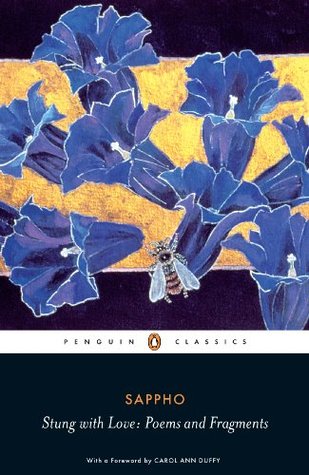More on this book
Community
Kindle Notes & Highlights
Ovid,
Christina Rossetti,
Amy L...
This highlight has been truncated due to consecutive passage length restrictions.
a woman’s eye
Scholars have argued that Sappho’s language is a form of enchantment,
philotes
philia
Aphrodite Pandemos (‘of all the people’),
To make this distinction clear, we need only consider Madonna’s ‘Like a Prayer’ (1989), a pop song that also mingles the religious and the erotic.
‘we bid a very high price in dowries only to buy a man to be master of our bodies… then comes the greatest risk: will we end up with a good man or a bad?’ (Euripides, Medea 231–5).
ekdosis,
kyrios,
Hymen’s
anakalyptēria)
In the following fragment, the doorkeeper’s feet are broad both so that he can better guard the door and so that the chorus can hint that he has an enormous penis:
‘Girls, chase the violet-bosomed Muses’ bright’,
Homeric style
the singer ‘does not attempt to impose her will upon the person she loves but instead, through engaging appeals, tries to elicit a corresponding response from her’.19
Medea,
In ‘Some call ships, infantry or horsemen’ Helen of Troy, the object of desire par excellence, gives up her husband and family of her own free will for the thing that she desires – Paris.
Athenaeus claims that she ‘did not separate to kalon (the beautiful) from habrotēs (extravagance)’ (Scholars at Dinner 15.687a).
But I love extravagance, And wanting it has handed down The glitter and glamour of the sun
As my inheritance.
more golden than gold
Sappho’s frequent use of eraton (lovely), an adjective which expresses both desire and loveliness,
Charles Segal takes this sonic richness a step further, arguing that Sappho’s language is incantatory and its effect is thelxis (enchantment): ‘… for Sappho the “power” of love is a god, as power often is for the ancient Greeks, and as such is to be summoned before her by the incantatory power and the quasi-magical thelxis of her poetry. Her poetry both portrays thelxis and, in a sense, is thelxis.’26
Archaic poetry]
‘Kytherea, precious’
‘Maidenhead, maidenhead, where have you gone?
Again, the singer is presumably playing the lyre while a chorus danced.
as with most things having to do with Sappho, we must content ourselves with probabilities.
the Sapphic stanzaBOT, which she popularized and may have invented (some attribute it to Alcaeus),
Sappho is important because she gives a fully human voice to female desire for the first time in Western literature.
kletic hymn
Whereas other kletic hymns summon the deity from habitual haunts,
The apple orchards are charien (‘charming’) – a word most often used of personal charm.
the Golden Age.
the roses turn to shadows and the leaves ‘drip slumber’.
All of the landscape elements induce not just normal sleep but kōma, a special sleep brought on by supernatural means.
‘Sweet mother, I can’t take shuttle in hand’
Aphrodite Kypria
philommeidēs
philommedēs
The focus on her smile here may also be meant to evoke the ‘Archaic Smile’ found on statuary...
This highlight has been truncated due to consecutive passage length restrictions.
summachos (‘ally in battle’).
‘She who shuns love soon will pursue it, She who scorns gifts will send them still: That girl will learn love, though she do it Against her will.’


